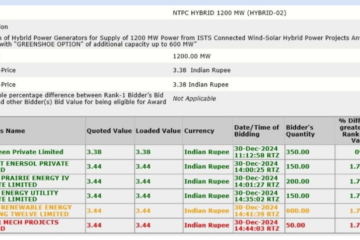Distributed Renewable Energy Application: A New Government Scheme in the Making

The Indian government is set to unveil a new scheme designed to promote distributed renewable energy applications across the country. This news comes as part of the government’s broader efforts to encourage renewable energy use and reduce greenhouse gas emissions. This article dives into what this new scheme might entail and the potential impact it could have on the renewable energy landscape.
The Concept of Distributed Renewable Energy
Distributed Renewable Energy (DRE) systems generate power close to the point of consumption. This not only cuts down on transmission losses but also ensures a more reliable supply of power. Solar panels on rooftops, small wind turbines, and biogas plants are all examples of DRE applications.
The New Scheme
Details of the new scheme are yet to be fully disclosed. However, according to RK Singh, the Union Minister of Power and New and Renewable Energy, the scheme could benefit lakhs of families across the country. This suggests a focus on increasing access to renewable energy sources, particularly in rural and underserved areas.
Summary Table
| Aspect | Details |
|---|---|
| Concept | Distributed Renewable Energy (DRE) systems generate power close to the point of consumption. |
| The New Scheme | Details are yet to be fully disclosed but the scheme could potentially benefit lakhs of families across the country. |
The potential impact of this new scheme could be profound. By promoting DRE applications, it could reduce the country’s dependence on fossil fuels, lower energy costs, and help mitigate climate change. Furthermore, it could drive innovation in the renewable energy sector and create jobs, thereby stimulating economic growth.
In conclusion, the forthcoming government scheme holds great promise for the expansion of renewable energy in India. As we await further details, the anticipation underscores the critical role of government policy in driving the transition towards cleaner, sustainable energy sources.
